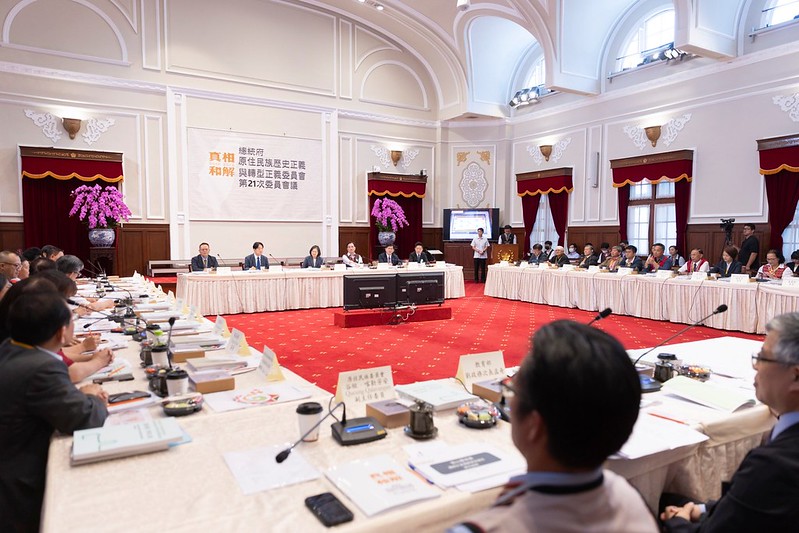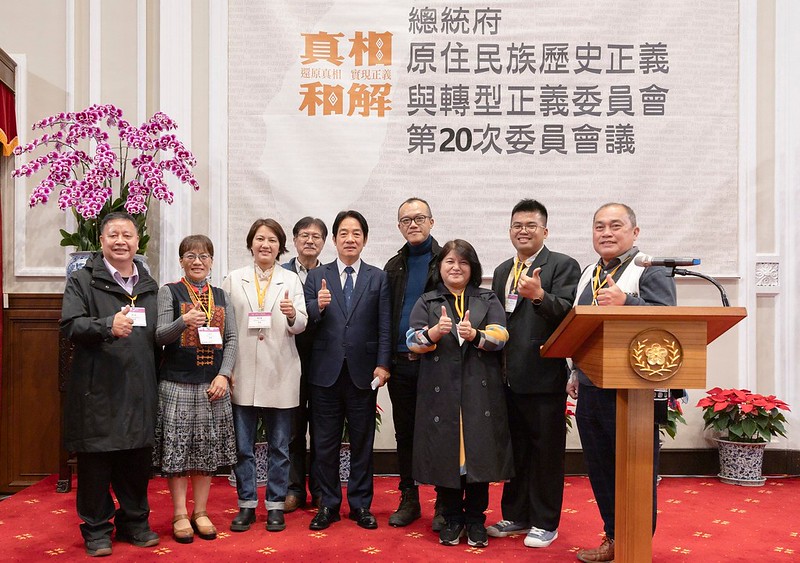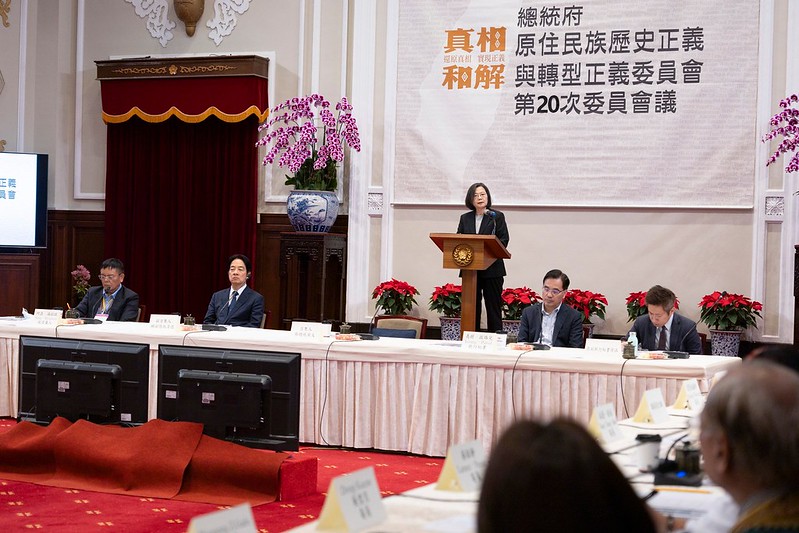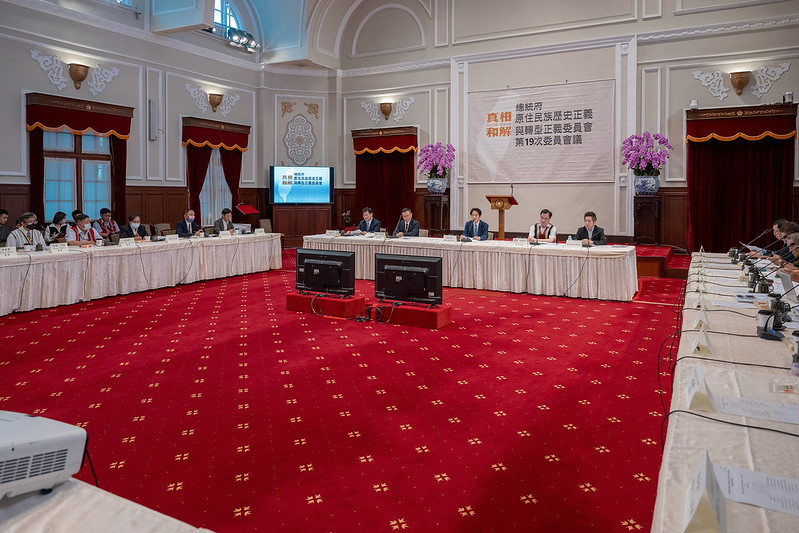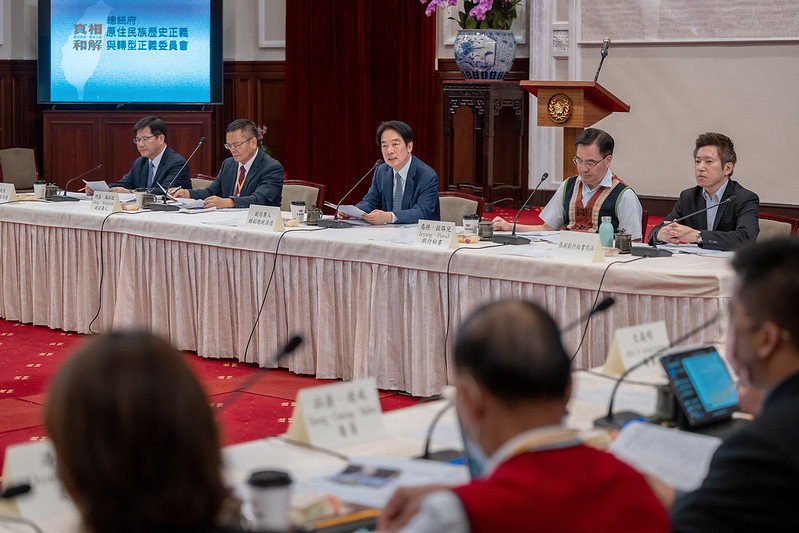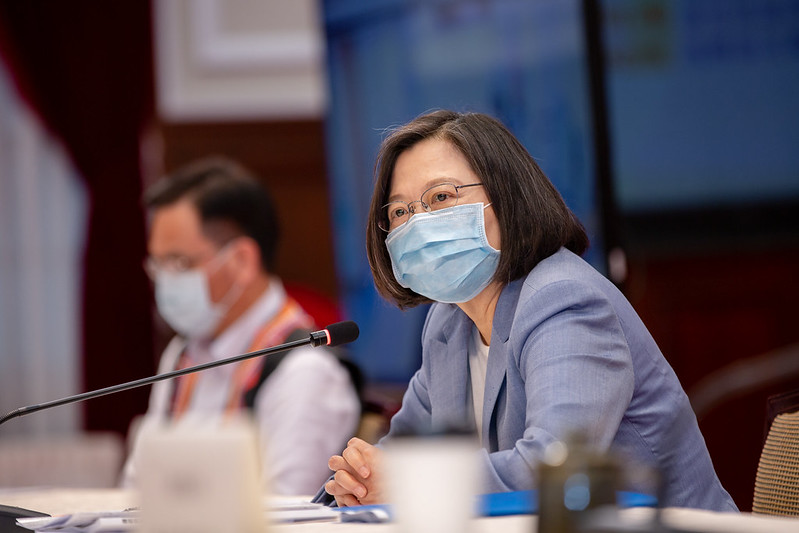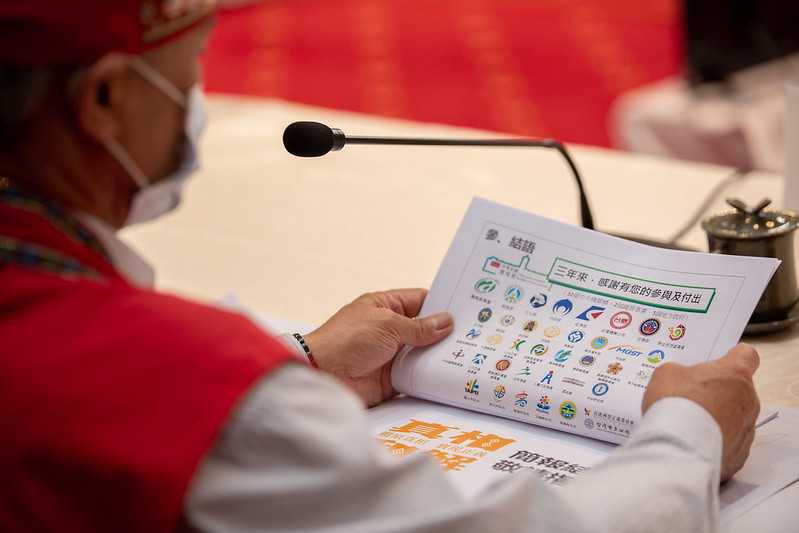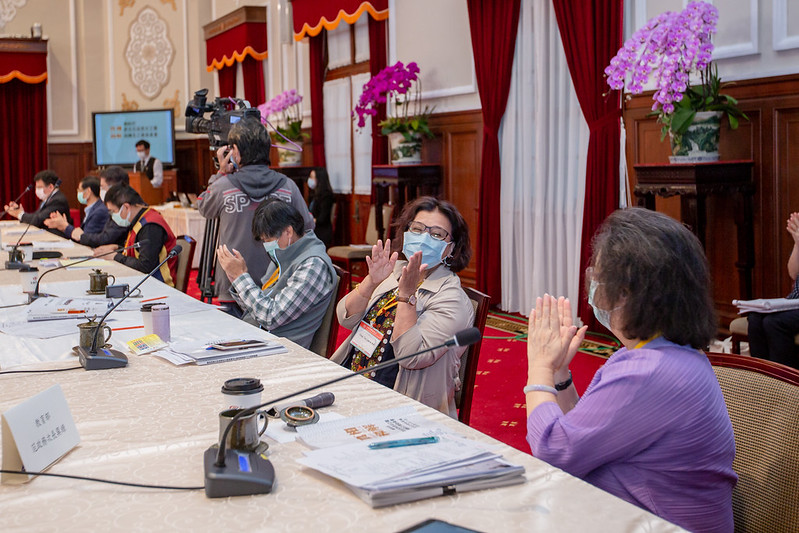News & activities
 News releases
News releases
Committee Convener President Tsai Ing-wen presided over the 13th meeting of the Presidential Office Indigenous Historical Justice and Transitional Justice Committee ("the Committee") on May 7. The meeting, which was the final meeting of the second-term Committee, ran for approximately two hours.
Due to the COVID-19 situation, this was the first time the meeting was held via videoconference, as required by the Central Epidemic Command Center's rules regarding indoor gatherings. Participants were located in five different districts (North District, Central District, South District, Hualien District, and Taitung District), and Committee members proceeded to the meeting venue nearest their home and attended the videoconference from there.
The Committee's Executive Secretary Icyang Parod (夷將‧拔路兒) delivered a report entitled "Achievements of the Indigenous Historical Justice and Transitional Justice Committee Over the Past Three Years (O Heci' no Nitayalan tona Toloay Mihecaan, "Achievements Over the Past Three Years" in Amis language)." The report outlined seven key achievements of the Committee during that period. Mr. Awi Mona (蔡志偉), the convener of the Subcommittee on Land Matters, then represented the five subcommittees in delivering a report entitled" "The State of Implementation of the Work Outlines of the Five Thematic Subcommittees," in which he detailed the measures taken by each of the five subcommittees to implement their respective three-year work outlines approved at the second meeting of the Committee, the achievements that these measures yielded, and follow-up policy suggestions.
During the meeting, Committee members made a total of 21 proposals and one extemporaneous motion. After the Committee members reviewed the proposals and motions, they were submitted to the Executive Yuan for further consideration. To close, the president thanked the Committee members for their comments and issued several conclusions. Her remarks are translated as follows:
I would like to thank all of the Committee members for your remarks. Today's meeting is now drawing to a close, which means that the second-term Committee is reaching the end of its term.
During its second term, our Committee met once every three months and gave everyone opportunities to exchange views at the Office of the President. On matters that could immediately be resolved, we took prompt action. Some matters required more time or posed more difficulties, but we never gave up.
Most importantly, I want to thank you all once again and recognize your hard work. Membership on the Committee is strictly honorary and comes without pay, yet you have chosen to take on the hopes of your communities and different walks, which I dare say is a great responsibility.
Even so, you have all maintained a high attendance rate and devoted considerable energy to visiting indigenous communities to solicit people's views, which you have translated into all sorts of proposals and commentary during the Committee meetings. I remember every meeting ended up going over the scheduled time and almost never finished in the allotted timeframe.
This was precisely the sort of process needed to ensure that the Committee's work would be done properly, and the only way to make sure that government policies would really reflect the needs of indigenous peoples.
I also want to give my sincerest thanks to the Committee's two deputy conveners, the conveners of the five subcommittees, and all the Committee staffers. Today's report shows that everyone has worked extremely hard over the past three years. Thanks to your concrete efforts, indigenous views of history have come into sharper focus, and growing numbers of friends both at home and abroad have come to understand the significance of the fact that our government has apologized to the indigenous peoples, pushed to uncover the true facts of history, and sought reconciliation. These experiences, along with the resulting reflections and suggestions, all deserve to be taken seriously by government agencies.
In addition, we must also thank the many government officials who have taken part in the Committee's work, particularly our Council of Indigenous Peoples staffers. Thanks to everyone's participation, "ethnic mainstreaming" is no longer just an abstract concept. On the contrary, it has gradually been incorporated into laws, regulations, and government policies. This represents progress for our government, and also for our nation.
May 20 is fast approaching. This time four years ago, I was preparing to take office as president and had already made preparations to begin working to achieve historical justice and transitional justice for indigenous peoples.
Four years later, as we look back, we find that although the process has not been easy, we have nevertheless entered a new era. In Committee meetings, the president and representatives of indigenous communities have engaged in regular dialogue. We have shone a spotlight on a diverse range of historical viewpoints. The agency and viewpoints of indigenous peoples have come to be taken more seriously, and have elicited more feedback than ever before.
These changes are not something that a small number of people could have achieved easily. To the contrary, they have required a collective effort, involving the combined efforts of the Committee members, subcommittee teams, colleagues from the government, and society as a whole.
Everyone involved in these efforts deserves credit for the achievements of the past several years. For tasks that remain unfinished, we will take into account the views of the Committee members and the policy recommendations of subcommittees as we continue forward.
During the next phase of our work, we will keep the Committee functioning even as we encourage government agencies and ordinary citizens to continue participating in a dialogue on ethnic mainstreaming. We will move forward in an uninterrupted effort to create a country characterized by equality and justice, where diverse ethnic groups co-exist and enjoy shared prosperity.
I call on all Committee members, all our colleagues in the government, and all of our friends taking part in this videoconference to keep working together toward these shared goals, regardless what your position may be. Thank you.
